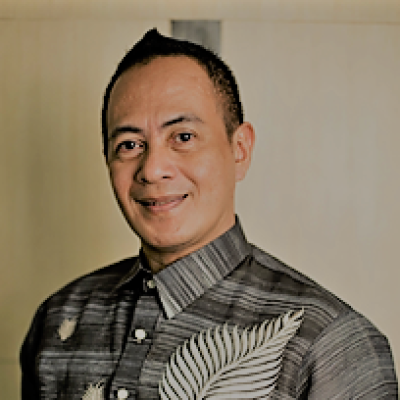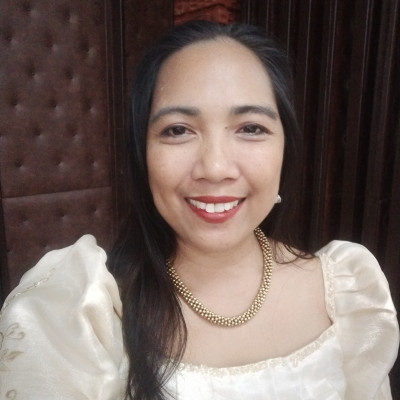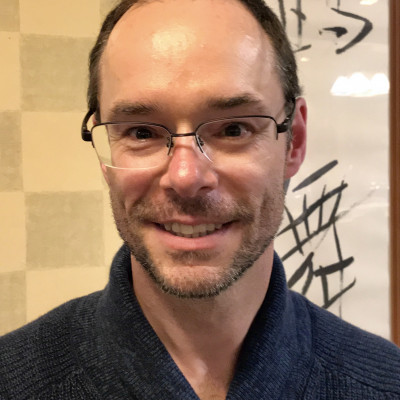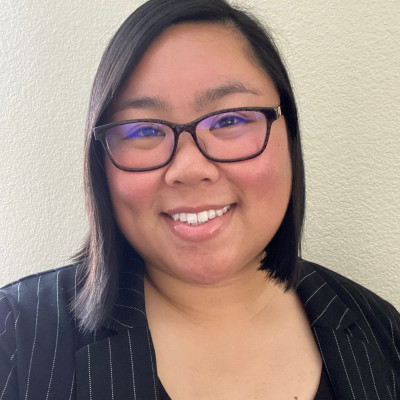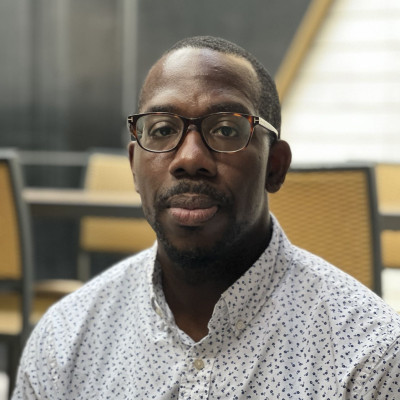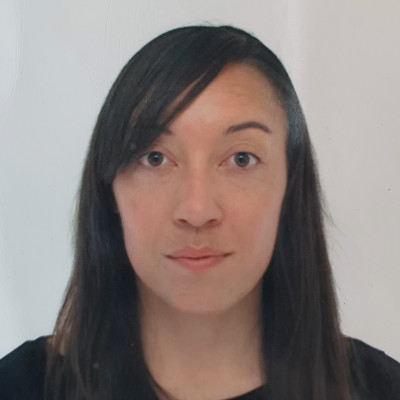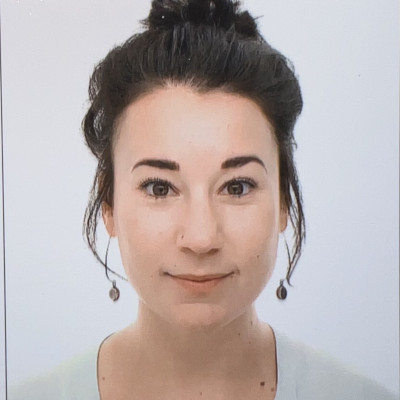Sessions / Materials / Course / Curriculum Design
Cancelled Expansive Collaboration Towards the New and Enhanced Language Curriculum #3640
Partner Session (PALT)
The abrupt changes brought about by COVID-19 pandemic urged teachers across the country to make education possible and continuous. This study participated by 32, 699 English teachers from all over the Philippines employed a descriptive-survey research design to seek feedback from the teachers on the Most Essential Learning Competencies (MELCs) in the English Curriculum, its adoption and implementation in response to learning continuity amidst the health crisis.
Results revealed that English teachers responded positively on the issuance and utilization of MELCS; statistics further reveal that respondents agree that the MELCs allow them to plan for and meet the individual learner’s needs and interest.
However, delivery of the MELCs is seemingly challenging for English teachers. They also noted different issues and gaps in the implementation of MELCs and they acknowledge the importance of learning modality, parental support/adult supervision, preparedness of teachers, learning environment, availability of learning resources, internet connectivity, and local government support.
These inputs are important in crafting the new curriculum and its support system: teacher training and materials development.
The Triple Perspective Approach to Learning #3594
This poster presentation will explore the effectiveness of a triple perspective textbook as a novel approach to learning and teaching. The concept of the genre is both simple and complex in that the perspectives given by the 3 characters (triple perspectives) are recommendations on how to learn a specific topic or skill. This style of instruction or advice demonstrates more than one way of doing any one task. The idea of this new genre is to help students develop their own learning style and their own way of doing tasks based on the advice from three sources. The concept is born of the idea that students need to hear a range of advice in learning new skills while appreciating that everyone is different somehow, and that being comfortable in this knowledge, ownership of their own techniques and style is a critical part of self-development and success. This approach lets students read simple texts that are genuine advice from real teachers, and to afford them space to write down the ideas and techniques of these three experienced teachers. From here they choose their own preferred styles and which strategies to adopt. This is a new approach to instruction.
Poetry-Based Instruction: Teachers' and Students' Perceptions #3621
Using poetry for learning and teaching English has long been a controversial topic. Despite numerous research studies suggesting that poetry boosts students’ self-expression and creativity, many teachers might still feel reluctant to use poetry in their classes. This research aimed to measure teachers’ and students’ perceptions of reading and writing poetry in an English classroom. The research instruments included both surveys and individual interviews that focused not only on reading but also writing simple poems in English. In this presentation, I will discuss the results of the research and outline several practical points on how to effectively use poetry in a classroom. The findings indicate that students were mostly interested in the expressive ability of poetic reading and writing, whereas teachers highlighted the benefits of poetry interpretation and possible drawbacks of poetry usage.
Educating Students to Understand Genre: Awareness Rather than Acquisition #3603
Research, both recent and established, advises basing some language courses on genre, with a view to how it can empower learners to function in modern society. However, a distinction has been made between 'genre acquisition' and 'genre awareness' (Johns, 2008). The latter emphasizes ‘educating’ students to understand genre rather than just ‘training’ them: it develops "the rhetorical flexibility” that is more essential when learners come across new, unfamiliar, and/or hybridised genres, as opposed to simply reconstructing texts, usually based on a standardised sample of that genre in a very formulaic manner. However, teaching students to actually become genre-aware is challenging. In this poster, I will describe one such attempt, describing the course, its goals, and some example activities. Some representative work and subsequent reflections from the students are shown to demonstrate the relative success this course/activity had in achieving 'genre awareness'. Hopefully, this presentation will provoke thought and discussion, and encouragement.
Pedagogical Approaches to Studying Literature to Enhance EFL Learners’ Language Proficiency #3606
Partner Session (ETA-ROC)
As literary courses in the curricula of the departments of Foreign Languages and Literature or English have been greatly dwindled, this presentation aims to examine the use of literature in a college EFL classroom in Taiwan to enhance students’ language proficiency and cultural awareness. It will discuss the major reasons why literature is neglected and explain the benefits of studying literature, to explain the pedagogy and activities used to comprehend the selected literary texts, and demonstrate how a four-skilled integrated approach (listening, speaking, reading, and writing) to learning literature can enhance EFL learners’ language performance. It is hoped that college students will be benefitted by studying literature.
Providing Authentic Communication through a Discovery Experience #3661
This presentation introduces a pedagogical project aimed at igniting Japanese university English learners' willingness to communicate by providing an authentic communication experience from the everyday English classroom. The designed project consisted of three discovery missions for students that began when students received a box from overseas. By writing a letter and receiving a response, students created a presentation on what they learned about the sender. This pedagogically designed experience-based activity fostered an interest in communicating with dissimilar others using English as a communication tool. This project contributes one idea for practitioners who wish to incorporate authentic communication in their everyday lessons.
Using Google Docs For Collaboration In Schools On Material Preparation #3665
Partner Session (JALT)
Many teachers working in private language schools or in the public and private elementary, middle and high schools have limited time for material preparation. Some have access to shared resources that individuals have made and posted on various websites, which may or may not be behind paywalls. But even these resources never seem to match ones own particular teaching situation, or the materials may actually be quite flawed. A solution to this problem would be to collaborate with colleagues in your own school or with others in a similar teaching environment using Google Docs. This workshop will show a real case study of a collaborative effort of three teachers to make materials at a private children's English language school in Japan that enhanced our classrooms and matched perfectly with the vocabulary and targets in our textbooks. Finally, the participants will be able to try their hand at collaborating on a small project.
Flipping for the Future: Revamping the Post-Pandemic Classroom with Flipped Learning #3551
Transforming the teacher’s role from “sage on the stage” to “guide on the side” (King, 1993), a flipped curriculum is not merely an online course, self-paced assignments, or collection of self-study materials, but rather a carefully crafted curriculum that shifts the bulk of content and assignments on the lower levels of Bloom’s Taxonomy outside of the classroom, and focuses in-class time on reaching higher levels of thinking with the guidance and support of the teacher. Compared with traditional classrooms, a flipped approach creates more opportunities for student engagement, increases student autonomy and motivation (Campillo-Ferrer & Miralles-Martínez, 2021), and allows for further student collaboration. In this workshop, participants will be guided through flipping using three easy-to-remember principals. Participants are encouraged to bring their own lesson plans to personalize their workshop experience, and will leave prepared to further enhance students’ learning experiences and help maximize classroom time.
Collaboration and distributed leadership to revise Academic Writing student learning outcomes #3634
This poster will describe the steps taken in an ongoing collaborative project involving lecturers and administration to revise the course outcomes of a second-year academic writing course at a private Japanese university. Outcomes for the course were initially based on a Multiliteracies framework (New London Group, 1996) to generate culturally and linguistically diverse students (Johnson et al., 2015). Starting in 2020, a distributed leadership approach (Hallinger & Huber, 2012; Spillane, 2006) was used to revise the course’s less practical or approachable existing outcomes. This approach allowed various stakeholders the opportunity to reflect on and assess the course curriculum and their teaching (Drago-Severson, 2008) and participate in formulating improved outcomes based on those practices. Presenters will describe the process as a model for feasible and achievable distributed leadership. Research findings demonstrate teachers’ and students’ understanding of the finalized, new outcomes and how available materials connect to different outcomes.
Silver Linings: From Emergency Remote Teaching to EAP Resiliency #3413
This presentation explores the experiences of six educators and course coordinators working within an English for academic purposes (EAP) program at a private university in Western Japan. The presenters leverage an action-research approach to examine their own narratives surrounding the challenges of adjusting to emergency remote teaching (ERT) during the COVID-19 pandemic. The presenters wrote narratives regarding the daunting task of using digital tools to convert face-to-face content into ERT. The authors coded each other’s narratives and then used the auto-hermeneutic approach to analyze the data to find recommendations for improving pedagogy and practice. The chapter offers insight into best practice for those embedded in EAP or other similarly interconnected, multi-faceted content higher education programs. The results suggest educators need to help cultivate greater institutional, faculty, and student competency with educational technologies and to explore evidence-based pedagogy related to online learning to prepare for future instances of ERT.
Exchanging Experiences to Build Understanding: Dialogue Journal Use In Service Learning #3397
Jacoby (1996) defines service learning as “a form of experiential education in which students engage in activities that address human and community needs, together with structured opportunities for reflection designed to achieve desired learning outcomes.” Pedagogically, students’ ability to negotiate their understanding of and relationship with learning outcomes and connected social issues expand as they engage in structured reflective practice. This workshop presents the theoretical background of service learning in the context of language instruction before narrowing the focus to the design and implementation of dialogue journals: shared, student-led logs offering collaborators space to describe, probe, and interrogate their cumulative experiences. Attendees of this workshop will be led in a series of joint tasks analyzing and critiquing the tool, sharing teaching contexts, and exploring ways to incorporate similar frameworks in their classrooms - calling special attention to instructor interaction and customizing feedback.
A comparative study on English curriculum implemented in Mongolia and South Korea #3740
Partner Session (Mongolia TESOL/ELTAM)
The present study aims to investigate and compare the English curriculum being implemented in secondary schools in Mongolia and South Korea. Comparisons are made in terms of characteristics, achievement standards, organizations, and contents of the curriculum. Analysis found that there are several differences in some points such as the starting period of teaching English and some points in the main objectives. The aim of the English curriculum of Korea presents that English is a tool for introducing Korean culture, while the curriculum of Mongolia aims that the cultural awareness of other nations enhances learners’ desire to learn a foreign language. Thus, it is found that the achievement standards in both curriculums focus on specific skills and their integration, and those specified standards are the basis for the evaluation. The main scope of the content in both curriculums is based on language function skills and organized from simple to complex and easy to difficult.
Using Blended Learning to Create Student-Led Conversation Courses #3518
English learners in L1 environments often lack opportunities to practice their speaking skills, therefore every second in the conversation-based classroom is a precious moment for them. To increase engagement and maximize student speaking time, we have incorporated blended learning into our curriculum to create a student-led classroom. Outside the classroom or on specially designated days, students learn self-study techniques to practice a wide variety of speaking skills such as fluency, intonation or asking follow-up questions. This allows students to spend the majority of their time in class divided into small groups discussing topics ranging from everyday English to controversial current events, with specific topics chosen by students based on their personal interests. This design has led to increased participation as students take charge of their own learning in the classroom, while targeted goal setting and independent skill building activities keep students motivated as the progress from struggling through small talk to being able to confidently and competently discuss controversial issues. In this workshop, we will teach effective strategies and adaptable activities that can give your students more speaking opportunities and increase engagement in the classroom.
